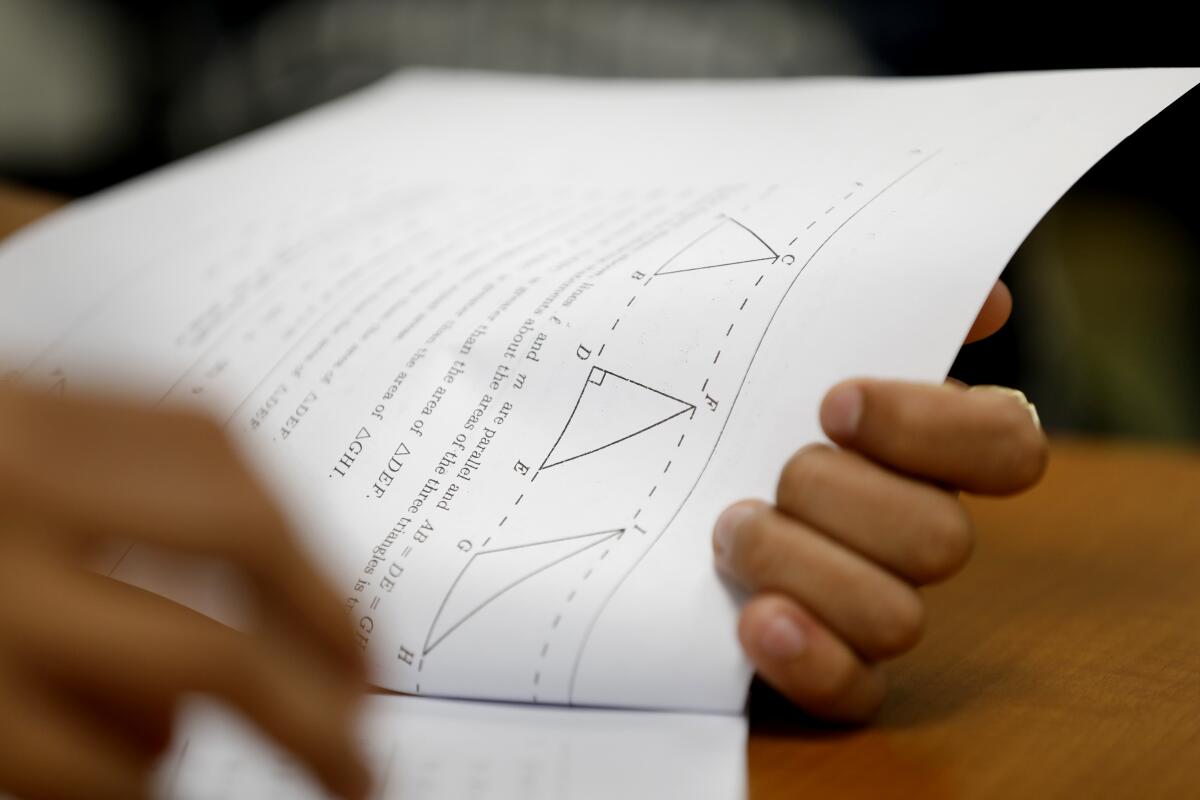Letters to the Editor: Does California really want to hold back its gifted math students?

- Share via
To the editor: As a retired teacher, educational administrator and credentialed specialist in gifted education, I am concerned by the state proposal to keep all students in the same math class until those of varying abilities can branch off late in high school.
For as long as I can remember, there has been disagreement among educators about the heterogenous grouping of students in classes. I believe that students of all abilities benefit from being with age-appropriate peers, but please show me a teacher who can address their varying needs effectively without compromising the needs of one group or another.
I have never met one, and that includes me.
Students with advanced skills do not benefit in any way from being “held back.” They may be well-behaved (or not), but the truth is they most likely have mastered the material they are about to be taught on the first day of school. They are therefore not being given an opportunity to learn.
This would be unacceptable for any other student, and yet it is deemed acceptable for those with more advanced abilities. What new concepts and skills would mathematically talented students be learning if the state were to require all students to move forward at the same pace?
Lisa Bloom, Valencia
..
To the editor: In your article on the new math curriculum proposal, two Stanford professors express optimism about mixing students at many different levels in a single classroom.
I would encourage the Stanford faculty to descend from Palo Alto’s leafy heights and experience reality in the ravines of public education.
I teach physics at a Cal State campus, where even advanced classes mix students with wildly varying mathematical skills. Some still struggle with high school math concepts, while others excel at advanced math. They are thrown together by harsh resource constraints, not humane pedagogical considerations.
Effectively meeting students’ individual needs will require more tracking, not less, and reallocating dollars away from administrative bloat so we can offer more courses at more levels.
Alex Small, Pomona
..
To the editor: As a professor in the Cal State Long Beach physics department since last century, I have taught thousands of students the foundational course leading to STEM careers.
My considerable experience tells me that every “calculus-ready” student can succeed here in the CSU system, and the proposal for K-12 math would broaden the number of Californians who will do just that. I am strongly supportive of the basic fairness of the concept.
The simple fact is that calculus-ready students and students with highest marks on the AP calculus test do just as well in my courses.
Galen Pickett, Huntington Beach
More to Read
A cure for the common opinion
Get thought-provoking perspectives with our weekly newsletter.
You may occasionally receive promotional content from the Los Angeles Times.









